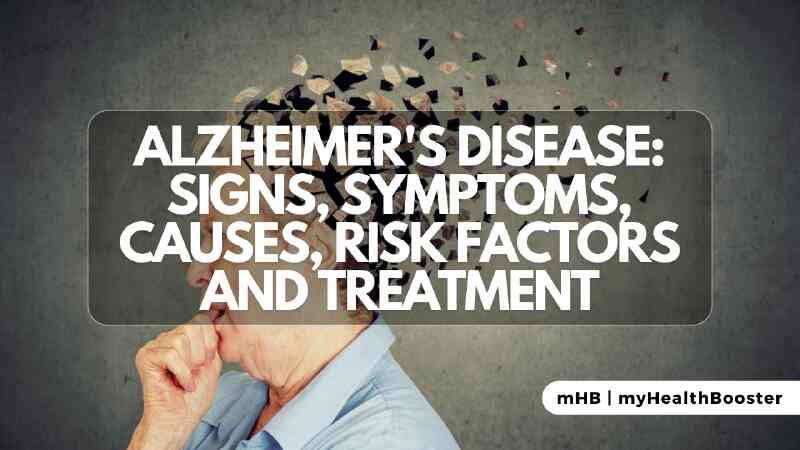What is Alzheimer’s disease?
Alzheimer’s Disease (AD) is a progressive brain disorder characterized by memory impairment and disruptions in reasoning, planning, language, and perception. Many scientists attribute AD to the accumulation of beta-amyloid protein in the brain, leading to nerve cell death.
Key Differences Between Alzheimer’s Disease and Dementia
Dementia is a syndrome marked by memory and cognitive impairments severe enough to impact daily functioning. While aging may bring some memory loss, Alzheimer’s is the most common cause of dementia globally.
Causes of Alzheimer’s Disease
The exact cause remains unknown, but the “amyloid cascade hypothesis” suggests a role for beta-amyloid. Genetic factors, particularly mutations associated with early-onset AD, contribute. The Apolipoprotein E (apoE) gene is a recognized genetic risk factor, with the apoE4 variant associated with increased risk.
Risk Factors for Alzheimer’s Disease
- Age: The primary risk factor, with the incidence rising significantly after 65.
- Genetics: Inherited gene mutations, especially in early-onset cases.
- Apolipoprotein E (apoE) Gene: The apoE4 variant increases the risk.
- Estrogen: Some studies suggest a higher risk in women.
- Other Factors: High blood pressure, heart disease, diabetes, elevated blood cholesterol, low education levels, and head injuries may contribute.
Warning Signs and Symptoms
- Memory loss
- Difficulty performing familiar tasks
- Problems with language and communication
- Disorientation to time and place
- Poor judgment
- Vision problems
- Problem-solving difficulties
- Misplacing items
- Changes in mood, personality, or behavior
- Loss of initiative or withdrawal from activities
Psychiatric Symptoms in Alzheimer’s Disease
AD patients may exhibit agitation, depression, hallucinations, anxiety, and sleep disorders. Medications, while widely used, lack FDA approval for these symptoms.
Stages of Alzheimer’s Disease
Onset is gradual, starting with subtle memory issues. Progression includes problems with abstract thinking, behavior changes, and, in advanced stages, complete dependency. Death often results from complications like pneumonia.
Diagnosis
No specific blood or imaging test exists. Diagnosis involves assessing cognitive decline, clinical course consistency, and ruling out alternative explanations. Other conditions screened include neurological disorders, infections, medication side effects, psychiatric disorders, substance abuse, metabolic disorders, trauma, toxic factors, and tumors.
Importance of Comprehensive Clinical Evaluation
A thorough assessment involves a general medical workup, neurological examination, and psychiatric evaluation. Brain imaging may be part of the evaluation, though not universally required. Despite efforts, a widely available blood test for diagnosis is not yet established.
Medications for Alzheimer’s Disease
- Cholinesterase Inhibitors (ChEIs):
- Donepezil Hydrochloride (Aricept): Approved for mild, moderate, and severe AD.
- Rivastigmine (Exelon) and Galantamine (Razadyne): Approved for mild to moderate AD.
- Tacrine (Cognex): Limited use due to more side effects.
- Partial Glutamate Antagonists:
- Memantine (Namenda): Approved for moderate and severe dementia.
- Namzaric:
- Combination: Fixed-dose combo of memantine hydrochloride extended-release and donepezil hydrochloride. Approved for moderate to severe AD.
- Memantine ER (Namenda XR):
- Use: For moderate to severe Alzheimer’s.
Non-Drug Based Treatments For Alzheimer’s Disease
- Social Interaction:
- Encourage social engagement to maximize well-being.
- Participate in activities like walking, singing, and dancing that bring joy.
- Cognitive Rehabilitation:
- Limited evidence on the efficacy of computer-based memory training programs.
- Ongoing research needed to establish its benefits.
Conclusion
A holistic approach to Alzheimer’s Disease involves a combination of medication and non-medication strategies. While pharmaceuticals aim to manage symptoms, non-drug interventions focus on enhancing patients’ quality of life through social interactions and enjoyable activities. Ongoing research continues to refine treatment options for this complex and challenging condition. Consultation with healthcare professionals is crucial for personalized and effective care plans.
Understanding Alzheimer’s Disease is crucial for timely intervention and support. Consultation with healthcare professionals is advised for accurate diagnosis and tailored care strategies.
